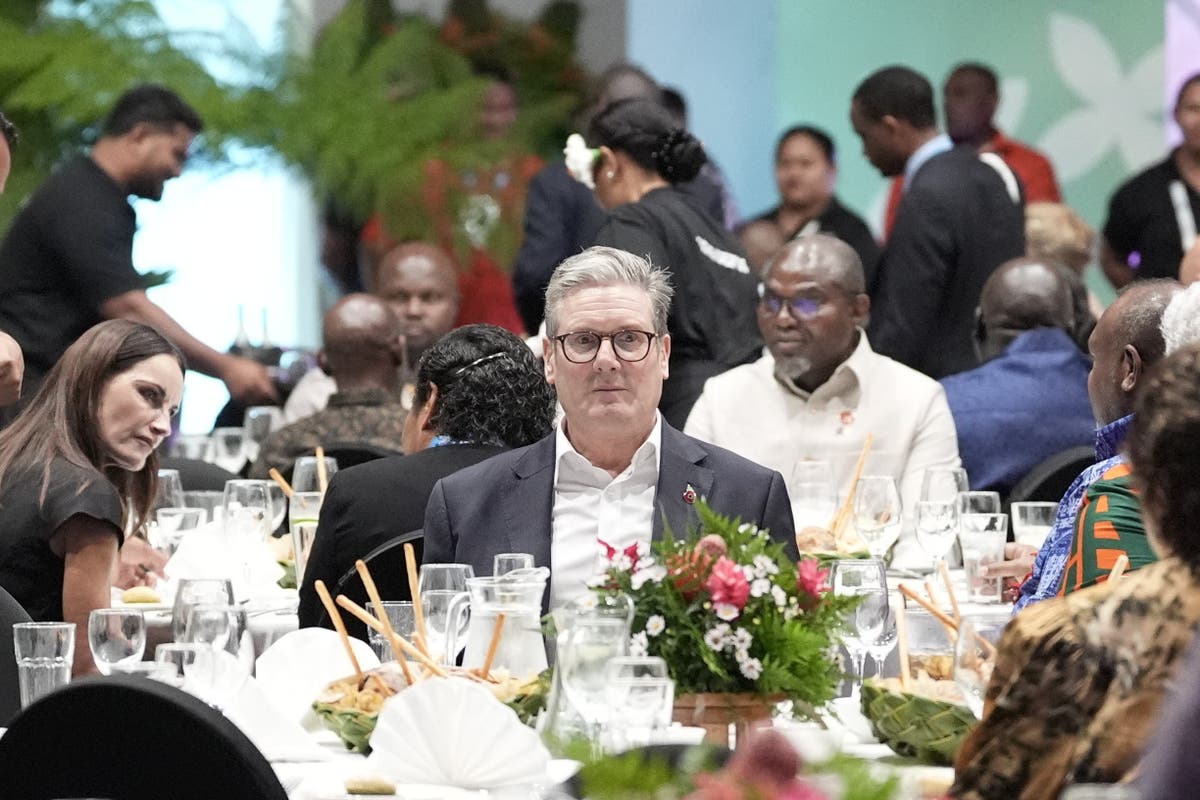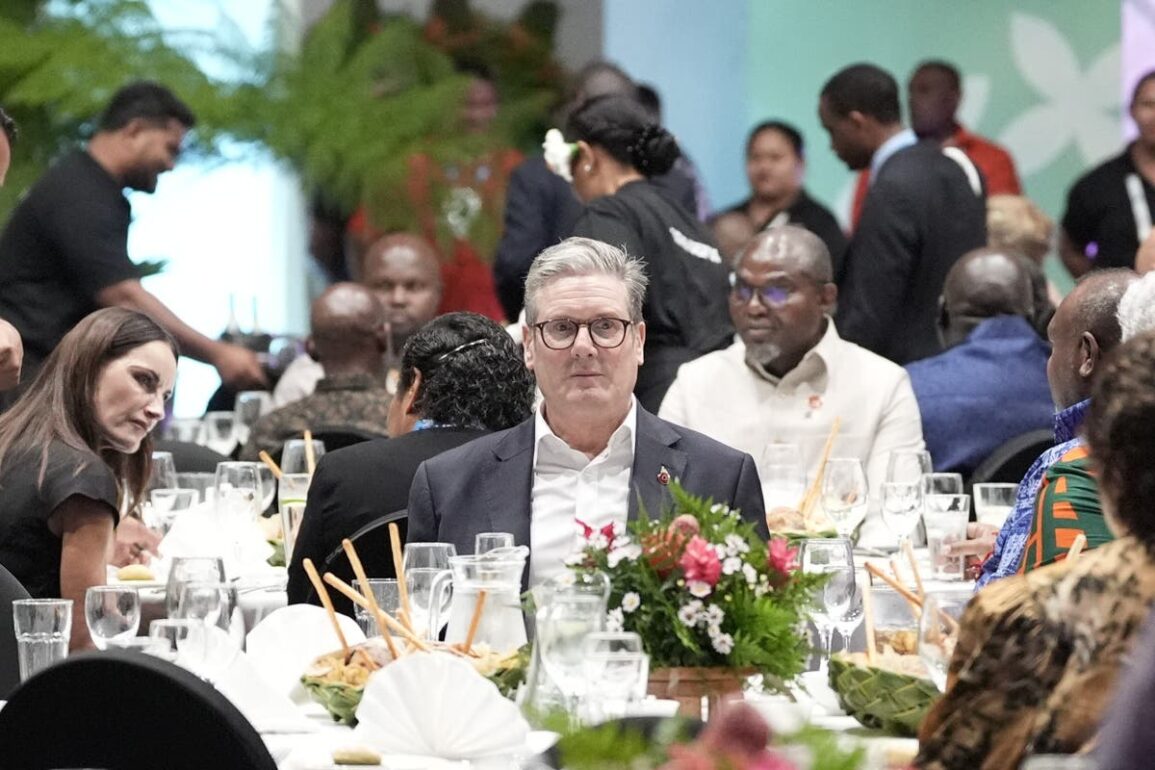
Your support helps us to tell the story
This election is still a dead heat, according to most polls. In a fight with such wafer-thin margins, we need reporters on the ground talking to the people Trump and Harris are courting. Your support allows us to keep sending journalists to the story.
The Independent is trusted by 27 million Americans from across the entire political spectrum every month. Unlike many other quality news outlets, we choose not to lock you out of our reporting and analysis with paywalls. But quality journalism must still be paid for.
Help us keep bring these critical stories to light. Your support makes all the difference.
Commonwealth leaders have defied the prime minister to agree the “time has come” to discuss reparations for the slave trade.
An row over the issue erupted earlier this week as Keir Starmer arrived at a major two-day summit in Samoa.
Now the UK has failed to keep language on reparations out of a joint statement signed at the end of the Commonwealth Heads of Government meeting (Chogm), despite Sir Keir’s call for the group to look to the future and not the past.
But the prime minister insisted there had been no discussions about money at the event.
And he tried to downplay the prominence of the issue, saying talks about climate resilience had instead been the “absolute priority” on Saturday.
The government has repeatedly ruled out offering reparations or an apology for the UK’s involvement in slavery.
Speaking at a press conference at the close of the conference, Sir Keir repeated his description of slavery as “abhorrent” but said that Britain’s position on paying for its role was “very, very clear”.
Th final communique signed by 56 Commonwealth leaders said they “agreed that the time has come for a meaningful, truthful and respectful conversation towards forging a common future based on equity”.
Asked if the inclusion of the language showed he had lost the argument and damaged the UK’s relations with Commonwealth, Sir Keir said: “The theme of the day was chosen by the prime minister here in Samoa, and she chose resilience and climate.
“So, I think, that gives you a clear sense of the absolute priority here, and that’s not surprising.”
He added: “I should be really clear here, in the two days we’ve been here, none of the discussions have been about money. Our position is very, very clear in relation to that.”
The document reads: “Heads, noting calls for discussions on reparatory justice with regard to the trans-Atlantic trade in enslaved Africans and chattel enslavement, and recognising the importance of this matter to member states of the Commonwealth, the majority of which share common historical experiences in relation to this abhorrent trade, chattel enslavement, the debilitation and dispossession of Indigenous People, indentureship, colonialism, blackbirding and their enduring effects, agreed that the time has come for a meaningful, truthful and respectful conversation towards forging a common future based on equity.
“Heads further agreed to continue playing an active role in bringing about such inclusive conversations addressing these harms, paying special attention to women and girls, who suffered disproportionately from these appalling tragedies in the history of humanity.”


